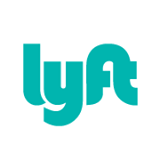People in Austin who use the ride-hailing service Lyft will have the option of selecting a self-driving car starting in 2022. But, at least initially, two humans will sit in the front as “test specialists” in case anything goes wrong.
Ford’s self-driving vehicles, including the Escape Hybrid SUV, are powered by technology from Argo AI, a Pittsburgh-based company that includes Ford and Volkswagen as major investors.
The vehicles will launch first in Miami later this year. They’re scheduled to arrive in Austin in the first half of 2022.
The number of self-driving Lyft vehicles operating on Austin streets will be relatively small at first. Ford, Lyft and Argo AI are giving themselves five years to get “at least 1,000 autonomous vehicles on the Lyft network” across multiple cites, they said in a joint press release. More details about the size of the fleet in Austin will be revealed closer to launch, a Lyft spokesperson said.
“This is a technology that is going to roll out in pockets,” said Jody Kelman, who leads product management for the consumer arm of Lyft’s self-driving division. “We always see that there will be a huge place for [human] drivers on our network.”
Ford started testing self-driving cars in Austin three years ago. The auto-maker had initially planned to launch its commercial self-driving service in 2021, but last year pushed the date back to 2022, citing the pandemic.
Driverless cars have long been seen as a key part of the Uber/Lyft future, since it eliminates the expense of drivers for them. It would also mean that the companies would have to own, maintain, and store the vehicles they’d use, which is a much more significant expense than the drivers are. As such, I have no idea how big a piece of that future this is, or how it would change their basic business model.
Here in the present day, I wonder how appealing the driverless Lyft service is for their customers versus the standard person-driven automobile. If you’re the type that prefers never having to interact with the driver, then this would have appeal. I’m the type that would be more worried about what happens if something unexpected comes up – car trouble, the programmed route becoming unavailable for some reason, an accident, whatever. Maybe I get a call while I’m in the ride and my plans have changed and now I need to go someplace else. Who do I tell to make that happen? Am I stuck there until I get to my destination and then have to call for another ride? Low-probability events, to be sure, but I’m certain there are plenty of other folks who would think this way.
One other potential factor in the not-yet-post-COVID world is that not being in the car with a complete stranger has more value now, even if you might be giving up some level of service assurance. I pondered this issue with the rise of automated grocery and pizza delivery services, and the same considerations apply here. There’s more room in the marketplace for these kinds of services than I would have originally thought, but it’s still all a bit puzzling to me. What do you think? There’s a longer version of this story in the Statesman, if you can get past their paywall (it was in a print version of the Chronicle a couple of weeks back, in the business section), and The Verge has more.


20 days and counting………